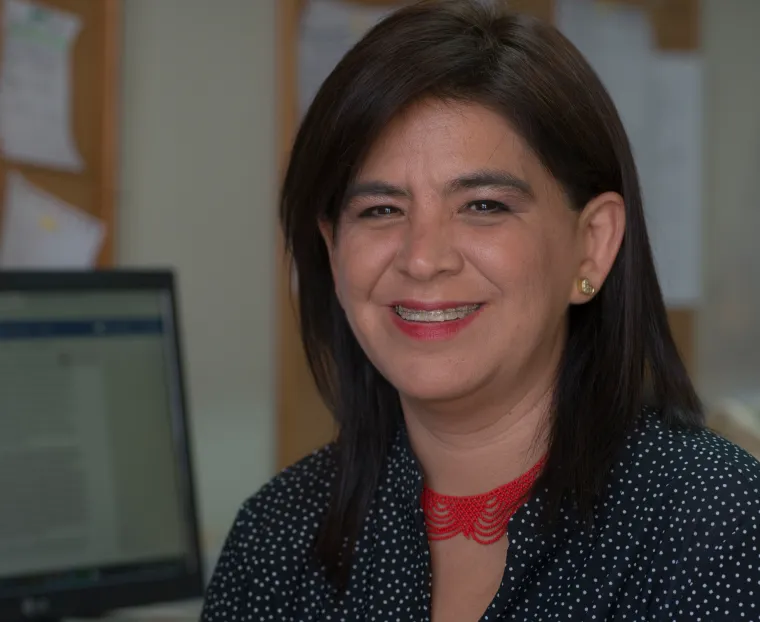New York, September 22, 2020 — Peruvian authorities must stop the campaign of legal harassment against journalist Paola Ugaz and take steps to reform the country’s criminal defamation laws, the Committee to Protect Journalists said today.
Yesterday, the Ninth Criminal Court of Lima held the first hearing in a criminal defamation trial for Ugaz, an investigative journalist and co-author of a 2015 book that alleged a pattern of sexual, physical, and psychological abuse within the Sodalitium Christianae Vitae, a Peruvian Catholic lay organization, according to the journalist, who spoke to CPJ in a phone interview, and court documents reviewed by CPJ.
Following yesterday’s hearing, the judge is reviewing the charges to determine whether the case will go forward, Ugaz told CPJ.
The criminal charges stem from a suit filed by Luciano Revoredo Rojas, a former congressional candidate and director of the conservative Catholic news and commentary website La Abeja, who alleges that Ugaz defamed him and La Abeja, according to those documents.
La Abeja’s website does not state any official affiliation with the Sodalitium Christianae Vitae. Revoredo wrote that he was involved with the organization in the 1980s, and La Abeja has published many articles defending the group from criticism.
Revoredo’s suit is seeking 200,000 soles (US$56,000) in damages, according to those documents. If convicted, Ugaz could face up to three years in prison and an additional fine under Peru’s criminal code.
“The use of criminal defamation suits to intimidate and silence Peruvian journalists like Paola Ugaz has gone on for far too long,” said CPJ Central and South America Program Coordinator Natalie Southwick. “Year after year, we see criminal defamation laws weaponized against Peru’s investigative journalists. Authorities must stop allowing these transparently targeted lawsuits and take overdue action to bring Peru’s defamation laws in line with international standards.”
Ugaz and journalist Pedro Salinas have faced a number of lawsuits since the 2015 publication of “Half Monks, Half Soldiers,” their co-authored book on the Sodalitium Christianae Vitae, according to Ugaz and reports by regional and international human rights groups.
Ugaz said she is currently involved in five different legal processes brought by people with ties to the organization, calling the suits “a smear campaign” and “unstoppable persecution that prevents me from writing.”
Revoredo’s suit, filed in September 2019, accuses Ugaz of criminal defamation for referring to La Abeja as a “defamatory outlet” in a June 2019 interview on the television show “En Voz Alta,” in an April 2019 article in the national newspaper La República, and in a June 2019 radio interview of local broadcaster Radio Exitosa, according to those court documents.
La Abeja has published dozens of articles about Ugaz and Salinas, accusing the journalists of attacking the Catholic church, of having connections to “Arab interests” in Peru, and equating their reporting practices to Nazi propaganda.
Revoredo did not respond to CPJ’s emailed request for comment. In a January 2020 article in La Abeja, he wrote that the suit had “absolutely nothing to do with her investigation into the [Sodalitium Christianae Vitae], but rather is because Ugaz repeatedly says that I and this media outlet are defamers.”
CPJ emailed the communications office of the Peruvian Ministry of Justice for comment, but did not receive any response.
Previously, in June 2018, José Antonio Eguren Anselmi, the archbishop of Piura, in northwest Peru, filed a criminal complaint for aggravated defamation against both journalists, according to news reports and court documents. The suit against Ugaz stemmed from an interview she gave to Al Jazeera in 2016 on the Sodalitium Christianae Vitae, as well as her tweets on the matter, according to those documents.
The Piura Criminal Court accepted the charges in October 2018; the complaint sought 200,000 soles (about US$60,000) in damages, and the journalists faced up to three years in prison, according to Ugaz and news reports.
A Piura court found Salinas guilty in a first ruling in April 2019, and sentenced him to a year of probation and a fine of 80,000 soles, but Eguren then retracted the case and the charges against both journalists were dropped, according to news reports.
After this article was published, Daniel Calderón Oliveros, the director of the Sodalitium Christianae Vitae’s communications office, responded to CPJ’s emailed request for comment, saying that “no member of the Sodalitium Christianae Vitae’s General Government has undertaken any legal action against Paola Ugaz or any other journalist” and that the organization had no “direct or indirect relation” to the complaints against Ugaz. Calderón’s email also stated that the organization “does not have any kind of connection with Luciano Revoredo.”
CPJ has documented how the continued use of outdated criminal defamation provisions to target critical journalists has threatened free expression in Peru. Last year, a Peruvian court ordered assets belonging to the independent news website Ojo Público and journalist Edmundo Cruz to be frozen as part of a criminal defamation complaint against them.
[Editors’ Note: This article has been updated to include the Sodalitium Christianae Vitae’s response to CPJ.]
